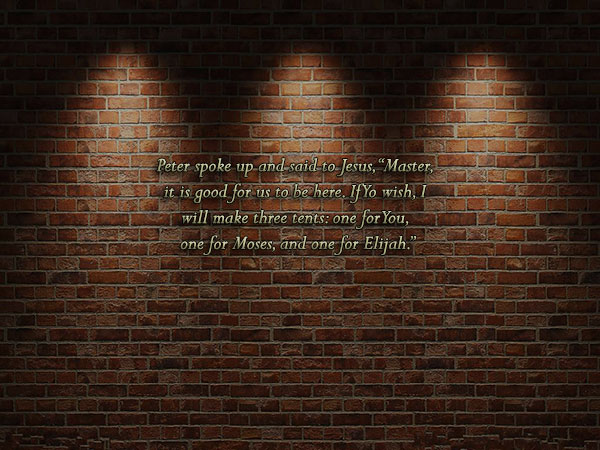Gospel: Jn 12:20-33
There were some Greeks who had come up to Jerusalem to worship during the feast. They approached Philip, who was from Bethsaida in Galilee, and asked him, “Sir, we wish to see Jesus.” Philip went to Andrew, and the two of them told Jesus. Then Jesus said, “The hour has come for the Son of Man to be glorified. Truly, I say to you, unless the grain of wheat falls to the earth and dies, it remains alone; but if it dies, it produces much fruit. Those who love their life destroy it, and those who despise their life in this world save it even to everlasting life. Whoever wants to serve me, let him follow me; and wherever I am, there shall my servant be also. If anyone serves me, the Father will honor him. Now my soul is in distress.
Shall I say, ‘Father, save me from this hour’? But, to face all this, I have come to this hour. Father, glorify your name!” Then a voice came from heaven, “I have glorified it, and I will glorify it again.” People standing there heard something and said it was thunder; but others said, “An angel was speaking to him.” Then Jesus declared, “This voice did not come for my sake but for yours. Now sentence is being passed on this world; now the prince of this world is to be cast down. And when I am lifted up from the earth, I shall draw all people to myself.” With these words Jesus referred to the kind of death he was to die.Lectio Divina
Read: Yahweh declares a new Covenant whereby He would forgive and forget people’s wrongdoings and inscribe His Law of Love in their hearts. Jesus preaches the Grain Theory: how death leads to abundance of life. The letter to the Hebrews speaks about how Jesus practiced this theory.
Reflect: Pope Francis, in his Jubilee Retreat to priests in June 2016, remarked: “True Grace is to forget.” Not anamnesis, but amnesia. The scriptural readings of the day confirm it. God promises to forget our sins, forever. Can there be a greater grace? Jesus invites us to forget ourselves – can there be a greater grace either? Jesus is not preaching about doing violence to ourselves (he didn’t say, “kill yourself”); rather, he gives us a “Grain Theory,” talking about a certain spiritual forgetfulness by which we let our lives fall so that we are free to become life for the world. The inability to forget is a sign of sickness and ill health – like our constant obsession with our teeth when we have a toothache. When our teeth are healthy, we forget we have teeth, but use them well. Or, when we have headache, we obsess about our head; but when we are healthy in head, we forget we have one, but use it well. Similarly, when we are sick in self, we obsess about our self; when we are healthy in our self, we simply forget we have one, let it fall and become bread for the world.
Pray: Lord, give me the true grace of forgetfulness.
Act: Observe nature and see how death naturally leads to life; and how resistance to death leads to ossification of life.© Copyright Bible Diary 2018
2014 Copyright. Claretian Communications Foundation Inc







